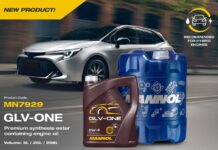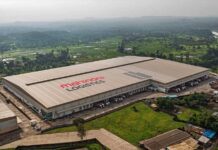
Country’s largest carmaker Maruti Suzuki’s parent company Suzuki Motor Corporation (SMC) has shared its product plan for the India market.
“In India, we will introduce the SUV battery EV announced at the Auto Expo 2023 in FY2024, with 6 models to be launched by FY2030. To provide a full range of products and services, Suzuki will provide not only battery EVs but also carbon neutral internal combustion engine vehicles that use CNG, biogas, and ethanol mixed fuels,” said the company in a statement.
The first BEV in the domestic market will be the eVX unveiled at the Auto Expo. The company said it aims to achieve a powertrain ratio of 15% BEVs, 25% HEVs and 60% hybrids by the end of this decade.
Suzuki said that based on the target date set by each government, it aims to achieve carbon neutrality in Japan and Europe by 2050 and in India by 2070. The company will also focus on biogas business, in which biogas derived from cow dungs, which are dairy wastes that can be seen mainly in India’s rural area, will be produced and supplied. This biogas can be used for Suzuki’s CNG models that account for approximately 70% of CNG car market in India.
“While we expect the Indian market to grow toward FY2030, we also expect that an increase in total CO2 emission amount is unavoidable, regardless of reduction in CO2 emission from products. We will challenge to strike a balance between increasing sales units and reducing total CO2 emission amount,” it said.
Suzuki has signed an MoU with the Indian government agency National Dairy Development Board and Banas Dairy, Asia’s largest dairy manufacturer, to conduct verification of biogas. “We also invested in Fujisan Asagiri Biomass LLC. that makes power generation from biogas derived from cow dungs in Japan, and are beginning its study,” it said while adding that it is in view of expanding the business to other farming areas in regions including Africa, ASEAN, and Japan in the future.
Additionally, the company said Suzuki Innovation Center is exploring new connections and innovations to thoroughly take root in India. “We will enhance our manufacturing strength by also cooperating with outside partners including start-up companies, Suzuki Suppliers Association, and cooperation with universities in Japan and India.” Suzuki also said that while continuing to be a competitor to Toyota Motor Corporation, it will cooperate in development of advanced technologies including autonomous and battery of electrified cars, and formation of a recycling-based society.






